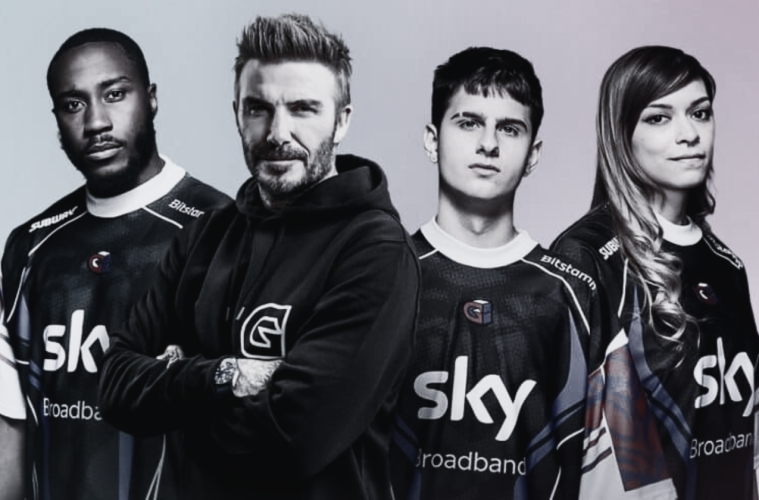The UK-based esports organisation Guild Esports, once backed by David Beckham and hailed as one of Britain’s biggest hopes in competitive gaming, has officially shut its doors. The company confirmed the closure in a statement, citing financial challenges and the wider economic climate as reasons why it could no longer keep operating.
An Important message from Guild Esports & Gaming Limited
After careful consideration, we must share the difficult news that Guild Esports & Gaming will be closing.
— Guild Gaming (@guildesports) August 21, 2025
But behind the polished announcement, many within the community are left frustrated, and in some cases, unpaid.
From Beckham’s Backing to Bankruptcy
Guild Esports burst onto the scene in 2020 with big promises and even bigger names. With former England and Manchester United star David Beckham on board as a part-owner, the organisation quickly secured high-profile partnerships with Sky and Subway, and made history as the first esports team to be publicly listed on the London Stock Exchange.

Image Credit: Guild Esports
The hype, however, didn’t translate to financial success. Guild’s stock price tumbled over the years, dropping more than 90% from its early peak. Despite raising funds and even selling a 25% stake in Ginx TV, the organisation never found solid financial ground. Losses ballooned, reportedly around the £2m mark, and by October 2024, US investment firm DCB Sports LLC stepped in, acquiring Guild for just £100k plus £2m in liabilities.
DCB, which also owns stakes in Venezia FC and the Monaco Women’s football team, kept the brand alive for less than a year before putting it up for sale on an insolvency market earlier this month. With no buyer found, Guild has now folded completely.
A Legacy of Wins, And Unpaid Wages
Despite the financial mess, Guild’s rosters did manage to find success. The organisation picked up major accolades such as winning the FIFA eChampions League in 2022, Fortnite’s FNCS: 2021 Grand Royale (Europe), and even the inaugural Prodigy Racing League championship. Guild also fielded teams in Apex Legends, Rocket League, and sim racing, making them a familiar name in international competitions.
But behind the trophies, a storm has been brewing. Multiple female content creators and players have come forward claiming that Guild owes them money. Esports host Frankie Ward was one of the loudest voices, accusing Guild of exploiting women in gaming.
What they’ve actually done is to exploit a ton of women in gaming – I’ve not had a single invoice from this year paid, and they had a non-compete clause for their sponsor Sky Broadband for the five month period that I hosted for them, blocking me from actually making money. https://t.co/O7wcmOdjvC
— Frankie Ward (@FrankieWard) August 21, 2025
She also revealed that Guild’s exclusive sponsorship deals blocked her from earning elsewhere, leaving her financially stuck.
It’s not just creators. Reports suggest that Apex Legends pros from Guild’s roster at the Esports World Cup are still waiting for prize money. Employees and even competition winners have also raised concerns about unpaid invoices.
The situation has left many furious, especially as Guild continued paying for extras like a gold check-marked Twitter account costing over £1k a month, while allegedly ignoring debts to their own players and staff.
Saying ‘financial challenges have made it impossible to continue to operate’ from a profile that is paying £1k a month for a gold tick and yet owes people money for work is irony at its finest…
Esports man 🙈 https://t.co/1TfNuAyxFA
— Jeff Simpkins (@HereLiesJeff) August 21, 2025
The Final Statement
In their closure announcement, Guild tried to highlight their efforts in representation and inclusion:
“From day one, our mission extended far beyond competition. We’ve been privileged to champion representation and create opportunities within our industry using esports and gaming as powerful tools for inspiration, inclusion, and empowerment.”
But critics argue that these words ring hollow when so many people remain unpaid.
What Went Wrong?
At the end of the day, Guild’s story feels like a mix of over-promise and under-delivery. Beckham’s involvement seemed more like a marketing gimmick than genuine passion for esports. The organisation spread itself too thin, failed to turn partnerships into profit, and never managed to operate sustainably.
Their downfall isn’t an isolated case either, 2025 has been a brutal year for esports, with organisations like Complexity even exiting Counter-Strike after two decades. Still, Guild’s collapse is particularly bitter for those who put in the work and may never see the money they’re owed.
For fans, players, and staff, Guild’s shutdown is the end of a short but chaotic chapter in UK esports history. Whether its legacy will be remembered more for its early achievements or its messy exit is a question only time will answer.

